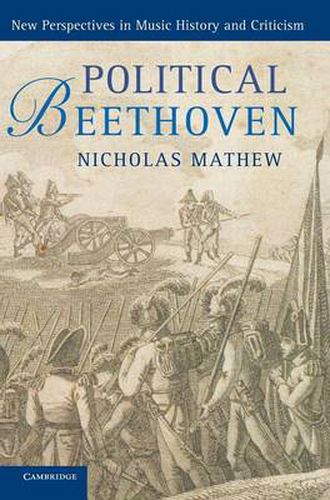Readings Newsletter
Become a Readings Member to make your shopping experience even easier.
Sign in or sign up for free!
You’re not far away from qualifying for FREE standard shipping within Australia
You’ve qualified for FREE standard shipping within Australia
The cart is loading…






Musicians, music lovers and music critics have typically considered Beethoven’s overtly political music as an aberration; at best, it is merely notorious, at worst, it is denigrated and ignored. In Political Beethoven, Nicholas Mathew returns to the musical and social contexts of the composer’s political music throughout his career - from the early marches and anti-French war songs of the 1790s to the grand orchestral and choral works for the Congress of Vienna - to argue that this marginalized functional art has much to teach us about the lofty Beethovenian sounds that came to define serious music in the nineteenth century. Beethoven’s much-maligned political compositions, Mathew shows, lead us into the intricate political and aesthetic contexts that shaped all of his oeuvre, thus revealing the stylistic, ideological and psycho-social mechanisms that gave Beethoven’s music such a powerful voice - a voice susceptible to repeated political appropriation, even to the present day.
$9.00 standard shipping within Australia
FREE standard shipping within Australia for orders over $100.00
Express & International shipping calculated at checkout
Stock availability can be subject to change without notice. We recommend calling the shop or contacting our online team to check availability of low stock items. Please see our Shopping Online page for more details.
Musicians, music lovers and music critics have typically considered Beethoven’s overtly political music as an aberration; at best, it is merely notorious, at worst, it is denigrated and ignored. In Political Beethoven, Nicholas Mathew returns to the musical and social contexts of the composer’s political music throughout his career - from the early marches and anti-French war songs of the 1790s to the grand orchestral and choral works for the Congress of Vienna - to argue that this marginalized functional art has much to teach us about the lofty Beethovenian sounds that came to define serious music in the nineteenth century. Beethoven’s much-maligned political compositions, Mathew shows, lead us into the intricate political and aesthetic contexts that shaped all of his oeuvre, thus revealing the stylistic, ideological and psycho-social mechanisms that gave Beethoven’s music such a powerful voice - a voice susceptible to repeated political appropriation, even to the present day.